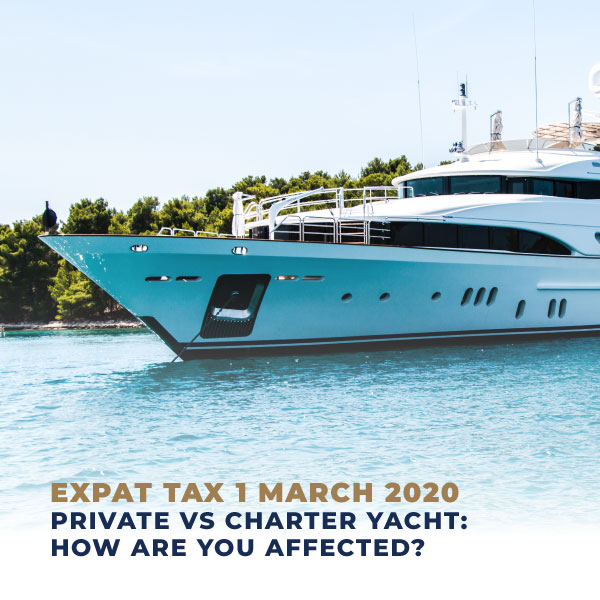EXPAT TAX 1 MARCH 2020 PRIVATE VS CHARTER YACHT: HOW ARE YOU AFFECTED?
South African seafarers and yacht crew are of the view that they automatically qualify for the exemption of their foreign employment income earned for their services rendered aboard a ship or yacht.
However, it is important for seafarers and yacht crew to know and understand that they need to fulfil certain requirements in order for them to claim the “seafarers” exemption in terms of the Income Tax Act.
Running a tight ship
Section 10(1)(o)(i)(aa) provides for the exemption of the full remuneration earned by an officer or crew member employed on a ship. The following requirements would need to be met should such officer or crew member wish to enjoy the benefits of the exemption:
- The taxpayer must be an officer or crew member aboard the vessel;
- Income received must be for foreign employment aboard a vessel;
- The vessel must be involved in the international transportation of passengers/goods for reward; and
- The taxpayer must be outside of SA for more than 183 days for the year of assessment.
Therefore, where you are an officer or crew member of a yacht or a ship, it is imperative that such yacht or ship is used for the purposes of the international transportation of paying passengers or goods that have been paid for.
Learn the ropes
Where an officer or crew member is employed aboard a private yacht and where there are no paying passengers, such person would not be able to claim the exemption in terms of section 10(1)(o)(i)(aa).
For example, some crew members or officers will find themselves working on a superyacht and the passengers on the yacht are not paying for their transportation. In this instance such crew member or officer would not be able to claim the exemption in terms of section 10(1)(o)(i)(aa).
Furthermore, it is important that the ship is transporting goods or passengers for reward outside of South Africa. Therefore, the exemption cannot be claimed by the crew member or officer aboard a ship that is merely docked or travelling within South African territorial waters, even if it is transporting goods or passengers for reward.
Don’t be caught between the devil and the deep blue sea
As a taxpayer, you hold the burden of proof to show that you qualify to take advantage of the exemption. It is therefore imperative that an employment agreement is in place, which clearly shows the duties and position that you hold as a seafarer. This will ensure that all doubt regarding qualifying to make use of the exemption is waived and you don’t find yourself having to scrummage for information needed to prove that you have met the relevant requirements.
Conclusions and final overview
Seafarers should therefore be familiar with the exemptions available to them and understand the requirements needed to meet such exemptions. They should also be familiar with and fully understand the manner in which their yacht/ship operates.
Should all else fail, an officer or crew member that has not met any of the above mentioned requirements for the seafarer’s exemption are still able to make use of the section 10(1)(o)(ii) foreign employment income exemption, provided they meet the requirements thereof. However, as of 1 March 2020, the foreign employment income exemption will be limited to an exemption of R1 million per year of assessment and they would not be able to have their full foreign exempted as with the seafarer’s exemptions.

Reabetswe Moloi
Tax Attorney



